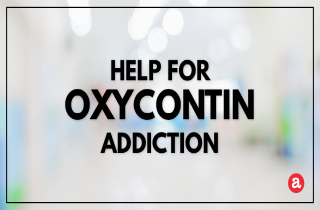OxyContin (oxycodone) is in a class of drugs known as and opioid analgesics, also called synthetic pain killers. OxyContin interacts with the central nervous system receptors in the brain, which plays an effect on the analgesic properties of the medication. However, OxyContin can also cause euphoria and has a high potential for dependence and abuse. How’s OxyContin abused? You abuse Oxy anytime you take it other than prescribed, or for non-medical reasons.
Are you someone or do you know someone who is addicted to OxyContin? Quitting OxyContin is just the beginning of the story. So if you want to know how to help an OxyContin addict or how to get them help, read on. In this article, we explore how doctors treat OxyContin addiction and how to help the OxyContin addict. Then we invite your questions about treating OxyContin addiction at the end.
How to help OxyContin addiction
1. Detox – The first step to helping address OxyContin addiction is to get oxycodone out of the system. During detox, medical professionals monitor drug withdrawal and address symptoms in a clinical way. Helping OxyContin withdrawal symptoms does a lot to help with keeping someone from relapsing during the initial phase of taking care of an addiction. However, once detox has been completed, the work of psychotherapy begins.
2. Psychotherapy – Many times an OxyContin addiction develops out of need to self-medicate from trauma or dysfunctional relationships. Psychotherapy addresses the underlying psycho-emotional issues which compel OxyContin use and, unless resolved, can lead a person to use OxyContin again. Additionally, behavioral therapy can teach an OxyContin addict how to make new choices to avoid Oxycontin use in the future.
3. Pharmacological treatment – Prescription medications can be used to address cravings for OxyContin, or to address the long term symptoms of withdrawal such as depression or anxiety. Each person is evaluated on a case-by-case basis and doctors or psychiatrists prescribe medications as they think best.
4. Long term support – OxyContin addiction is best managed in the day-to-day. Support groups and recovery programs help the OxyContin addict grow into more positive behaviors and roles.
Getting help for OxyContin addiction
Getting help for and addiction can be overwhelming. But you can get help for OxyContin treatment from many sources. It is important to find what works best for you. The main sources of OxyContin addiction help include:
- A trusted community or religious leader
- Addiction treatment centers
- An addiction psychotherapist (counselor, therapist, specialist)
- Licensed clinical social workers
- Your family doctor
While getting help for an OxyContin addiction, support is key and having a doctor or therapist to monitor physical and psychological relationships to addiction is important. Asking your family and reaching out is another way you can get help. You don’t have to be alone in the process. Seeking someone you trust to help you is a big step in treating an addiction.
How to help a OxyContin addict
Sometimes addicts can’t see their own behaviors. This is why one of the most important ways to help an OxyContin addict is to mirror back to them your experience and observations of their drug use. Scheduling an intervention or bringing an addiction to attention is the first step in seeking help. Having strong and clear boundaries with an OxyContin is also key. Avoiding enabling behaviors also helps the OxyContin addict. Don’t help them get their hands on the drug, don’t provide money, or housing. And avoid making excuses for their abuse of the medication. Seek help for planning an intervention, addressing enabling behavior and family dysfunction with a licensed clinical psychologist.
OxyContin addiction help and helplines
SAMSHA (The Substance Abuse and Mental Health Administration) has created a national hotline you can call to be referred to a doctor or addiction treatment facility. CALL 1-800-HELP(4357) to lear more about low cost or publically funded programs in your state through this hotelin.
Help with OxyContin addiction questions
Still have question about how to help OxyContin addiction? SPlease share your questions and experiences in the comments section below and we will answer your questions promptly.









Related Posts